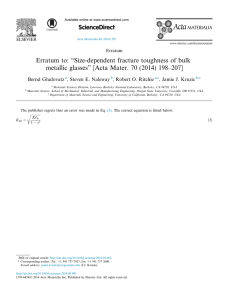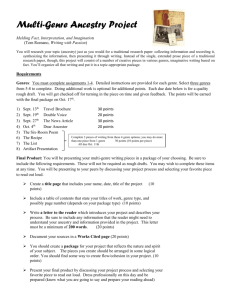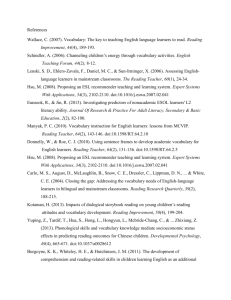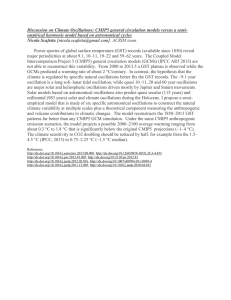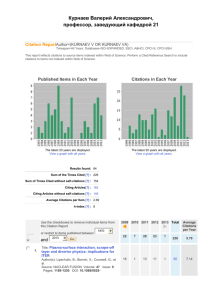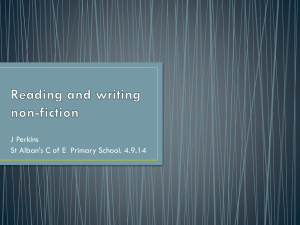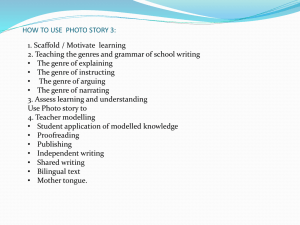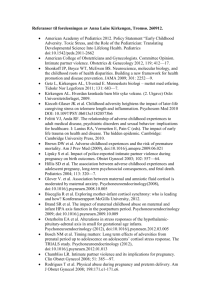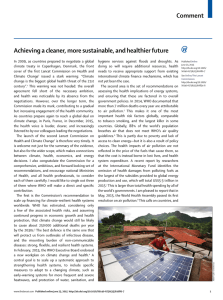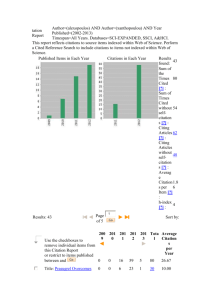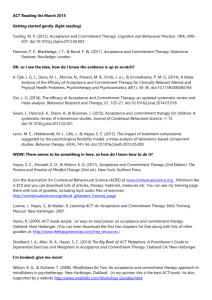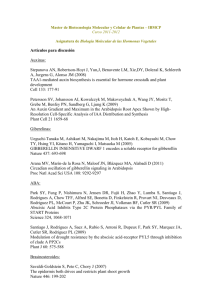Alabama research talk references_1-25-2016
advertisement
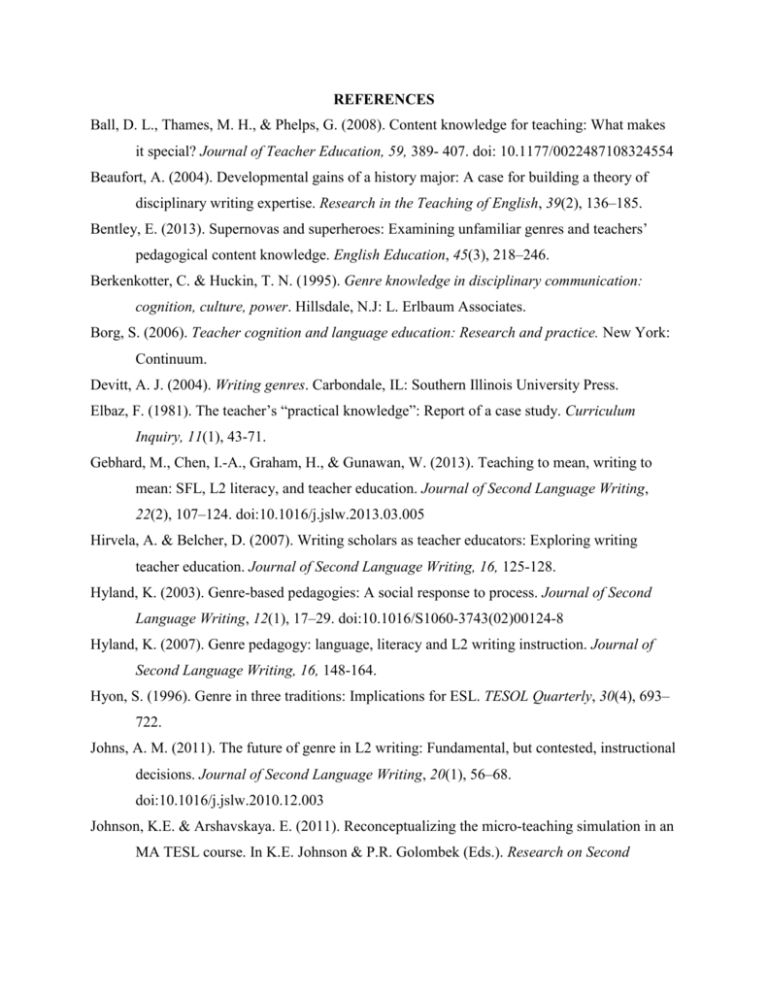
REFERENCES Ball, D. L., Thames, M. H., & Phelps, G. (2008). Content knowledge for teaching: What makes it special? Journal of Teacher Education, 59, 389- 407. doi: 10.1177/0022487108324554 Beaufort, A. (2004). Developmental gains of a history major: A case for building a theory of disciplinary writing expertise. Research in the Teaching of English, 39(2), 136–185. Bentley, E. (2013). Supernovas and superheroes: Examining unfamiliar genres and teachers’ pedagogical content knowledge. English Education, 45(3), 218–246. Berkenkotter, C. & Huckin, T. N. (1995). Genre knowledge in disciplinary communication: cognition, culture, power. Hillsdale, N.J: L. Erlbaum Associates. Borg, S. (2006). Teacher cognition and language education: Research and practice. New York: Continuum. Devitt, A. J. (2004). Writing genres. Carbondale, IL: Southern Illinois University Press. Elbaz, F. (1981). The teacher’s “practical knowledge”: Report of a case study. Curriculum Inquiry, 11(1), 43-71. Gebhard, M., Chen, I.-A., Graham, H., & Gunawan, W. (2013). Teaching to mean, writing to mean: SFL, L2 literacy, and teacher education. Journal of Second Language Writing, 22(2), 107–124. doi:10.1016/j.jslw.2013.03.005 Hirvela, A. & Belcher, D. (2007). Writing scholars as teacher educators: Exploring writing teacher education. Journal of Second Language Writing, 16, 125-128. Hyland, K. (2003). Genre-based pedagogies: A social response to process. Journal of Second Language Writing, 12(1), 17–29. doi:10.1016/S1060-3743(02)00124-8 Hyland, K. (2007). Genre pedagogy: language, literacy and L2 writing instruction. Journal of Second Language Writing, 16, 148-164. Hyon, S. (1996). Genre in three traditions: Implications for ESL. TESOL Quarterly, 30(4), 693– 722. Johns, A. M. (2011). The future of genre in L2 writing: Fundamental, but contested, instructional decisions. Journal of Second Language Writing, 20(1), 56–68. doi:10.1016/j.jslw.2010.12.003 Johnson, K.E. & Arshavskaya. E. (2011). Reconceptualizing the micro-teaching simulation in an MA TESL course. In K.E. Johnson & P.R. Golombek (Eds.). Research on Second Language Teacher Education: A Sociocultural Perspective on Professional Development. (pp 168-186) New York: Routledge. Lee, I. (2013). Becoming a writing teacher: Using “identity” as an analytic lens to understand EFL writing teachers’ development. Journal of Second Language Writing, 22(3), 330– 345. doi:10.1016/j.jslw.2012.07.001 Leki, I. (2006). The legacy of first-year composition. In P. K. Matsuda, C. Ortmeier-Hooper, & X. You (Eds.), The politics of second language writing: In search of the promised land (pp. 59-74). West Lafayette, IN: Parlor Press. Martin, J. R. (2009). Genre and language learning: A social semiotic perspective. Linguistics and Education, 20(1), 10-21. doi:10.1016/j.linged.2009.01.003 Shulman, L. S. (1987). Knowledge and teaching: Foundations of the new reform. Harvard Educational Review, 57(1), 1-22. Tardy, C. M. (2009). Building genre knowledge. West Lafayette, IN: Parlor Press. Vygotsky, L. S. (1986). Thought and language (A. Kozulin, Ed.). Cambridge, Mass: MIT Press. Wardle, E. (2009). "Mutt Genres" and the Goal of FYC: Can We Help Students Write the Genres of the University? College Composition and Communication, 60(4), 765-789. Worden, D. (2015). Developing writing concepts for teaching purposes: Preservice L2 writing teachers’ developing conceptual understanding of parallelism. Journal of Second Language Writing 30. 19-30. doi: 10.1016/j.jslw.2015.08.001
